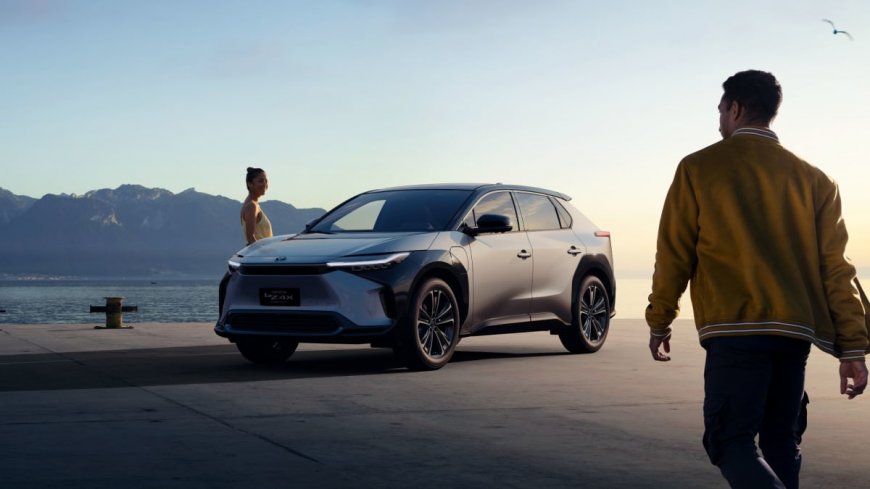Toyota Has a Game-Changing Solution for a Common EV Issue
The Japanese auto company is making some predictions about its planned solid-state battery.

Imagine going from the New York to Chicago on one charge.
Or how about zipping from L.A. down to Juarez, Mexico and still having some juice in your electric vehicle to spare?
DON'T MISS: Tesla Has a New Rival With an Unusual Electric Vehicle
There are two big questions for EV owners: How long will it take to charge up their vehicles? And how far can they go once they do?
Depending on an electric vehicle’s charging source and battery capacity, some drivers can charge their cars to 80% in as little as 15 to 30 minutes using a Level 3 fast charger, according to Kelley Blue Book.
However, most drivers will need at least a full day to charge a fully depleted electric car battery if they use the standard three-prong plugs found in the walls of most homes.
An all-electric vehicle can travel about 100 to 400 miles on a single charge, the U.S. Department of Transportation said, depending upon the model.
Cutting Battery Size and Cost
Tesla (TSLA) - Get Free Report took a big step recently when the world's largest EV manufacturer partnered with Ford (F) - Get Free Report, GM (GM) - Get Free Report and Rivian (RIVN) - Get Free Report recently and is giving their drivers access to its network of 12,000 chargers.
Now Toyota (TYIDF) wants to rock the EV world with some remarkable claims about its solid-state battery.
The Japanese automaker said it has made a breakthrough that will allow it to cut the weight, size and cost of batteries in half.
Keiji Kaita, president of Toyota's research and development center for carbon neutrality, said the company had developed ways to make batteries more durable and believed it can make a solid-state battery with a range of 745 miles and a charging time of 10 minutes or less.
"For both our liquid and our solid-state batteries, we are aiming to drastically change the situation where current batteries are too big, heavy and expensive,” Kaita said, according to The Guardian. “In terms of potential, we will aim to halve all of these factors.”
Electric vehicles currently use batteries that have liquid lithium-ion electrolytes.
Automakers and technology companies have produced solid-state battery cells for EVs in prototype, but have been unable so far to scale to mass production.
Solid-state batteries can hold much more power and are able to charge quickly without getting hot, making them much safer.
Simplifying the Production Process
Toyota believes it could simplify the production process, potentially making solid-state batteries easier to produce than lithium-ion ones and commercialize the technology into a vehicle by 2027, the Financial Times reported.
This replaces a previous target of 2025 which the carmaker originally set in 2017 and then reaffirmed in 2021, when it said it thought it could use the batteries in a hybrid model.
As competition to develop solid-state batteries intensifies, getting to market first would help Toyota gain an edge in a segment where it has been slower than rivals to roll out models.
The company has elected to develop hybrid vehicles, like its bestselling Prius model, and pushed for hydrogen-fuel-cell cars.
Last month, Toyota unveiled a broad plan that features a redesign of its factories in addition to a detailed explanation of how the company is planning to approach EV batteries.
Akio Toyoda, the grandson of the founder, had to step down this year, paying for his reluctance to embrace electric vehicles as Tesla surged on the stock market and became the darling of auto-industry investors.
He was succeeded by Koji Sato, who had been the boss of Lexus, Toyota's premium brand.
What's Your Reaction?



























































